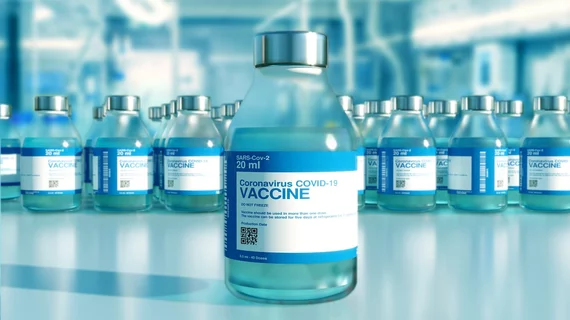An updated look at the risk of heart damage associated with 2 popular COVID-19 vaccines
The Pfizer-BioNTech COVID-19 vaccine is associated with a lower risk of developing myocarditis, pericarditis or myopericarditis than the Moderna Spikevax vaccine, according new research published in the Journal of the American College of Cardiology.[1]
The team behind the study did emphasize that the overall risk of developing one of these conditions after vaccination remains very low.
This new analysis focused adults who received the second dose of either the mRNA-1273 (Moderna Spikevax) or BNT162b2 (Pfizer-BioNTech) vaccine from January 2021 to September 2021 in British Columbia, Canada. Anyone with a history of myocarditis or pericarditis was excluded.
Overall, more than 2.2 million people received the second dose of the Pfizer-BioNTech vaccine and more than 870,000 people received the second dose of the Moderna vaccine.
Within 21 days of the second dose, there were 59 confirmed cases of myocarditis—21 related to the Pfizer-BioNTech vaccine and 31 related to the Moderna vaccine. There were also 41 confirmed cases of pericarditis during that time—21 related to the Pfizer-BioNTech vaccine and 20 related to the Moderna vaccine. Those statistics translated to 12.6 cases per million for the Pfizer-BioNTech vaccine and 35.6 cases per million for the Moderna vaccine.
In the general population, the rate of myocarditis was 2.01 cases per million in people under the age of 40 and 2.2 per million in people 40 years old and older.
“Few population-based analyses have been conducted to directly compare the safety of the two mRNA COVID-19 vaccines, which differ in important ways that could impact safety,” epidemiologist Naveed Janjua, MBBS, DrPH, lead author of the study and executive director of data and analytic services for the British Columbia Centre for Disease Control, said in a prepared statement. “Our findings have implications for strategizing the rollout of mRNA vaccines, which should also consider the self-limiting and mild nature of most myocarditis events, benefits provided by vaccination, higher effectiveness of the Moderna vaccine against infection and hospitalization [found in prior studies], and the apparent higher risk of myocarditis following COVID-19 infection than with mRNA vaccination.”
A related editorial, also published in the Journal of the American College of Cardiology, highlighted the importance of this research.[2]
“[The study] should help put to rest ‘vaccine hesitancy’ due to concerns over cardiac adverse events,” co-author Guy Witberg, MD, MPH, a cardiologist with Rabin Medical Center in Israel, said in the same statement. “This is one of only a few direct comparisons of the two widely-adopted mRNA vaccines, and its results have practical policy implications: for a substantial segment of the population suffering from cardiovascular disease…these data give a strong argument to preferentially use the BNT162b2 [Pfizer] vaccine over mRNA-1273 [Moderna].”

